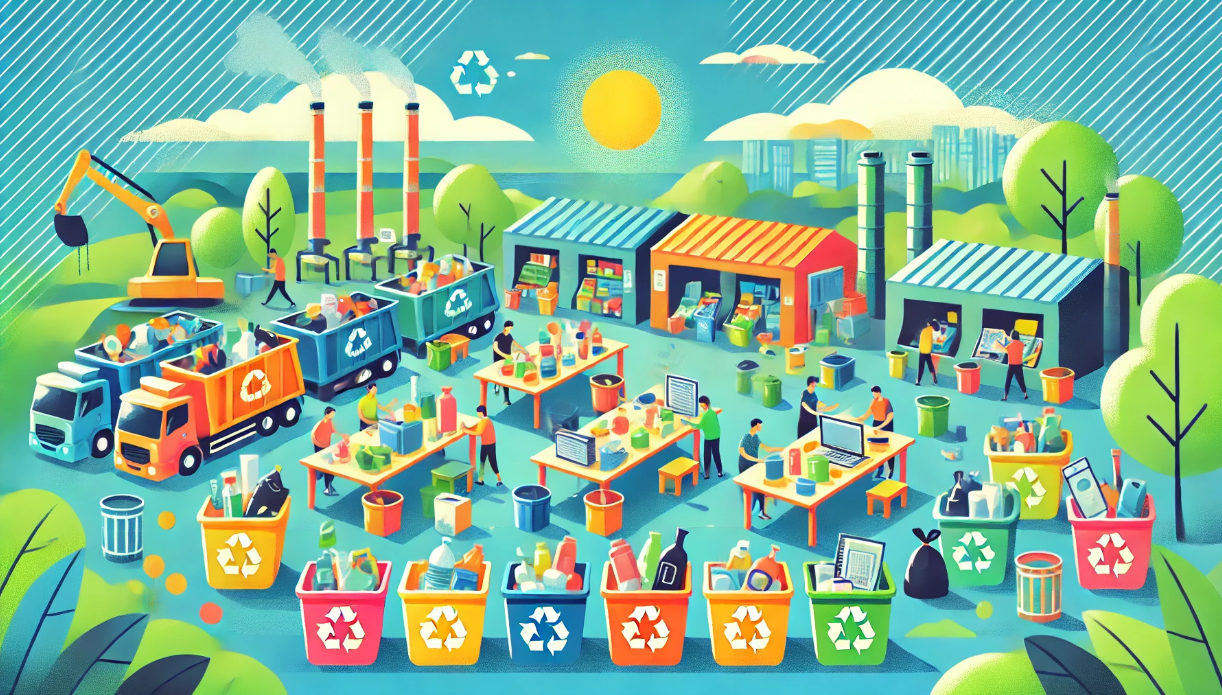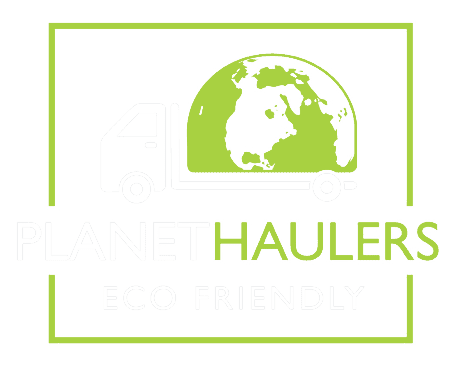Proudly Serving Orange & Long Beach Counties

Recycling Unwanted Items: How to Make the Most of Your Junk
We all have items in our homes or offices that we no longer need. Whether it’s an old couch, broken electronics, or unused appliances, disposing of these items can be a challenge. But instead of tossing everything in the trash, recycling unwanted items can help reduce landfill waste, conserve natural resources, and even save you money in the long run. In this guide, we’ll explore how to recycle common household and office junk, offer practical tips for eco-friendly disposal, and explain why recycling is essential for both the environment and your wallet.
Why Recycling Unwanted Items Matters
Recycling is more than just an environmentally conscious decision—it has tangible benefits for both your community and the planet. Many items, such as electronics, metals, and plastics, can be repurposed or broken down into new materials, reducing the need for raw resources.
1. Environmental Impact
When we throw items into the trash, they often end up in landfills where they can release harmful chemicals and greenhouse gases as they decompose. Recycling helps cut down on the need for new raw materials, thus preserving natural resources and reducing carbon emissions.
2. Reducing Landfill Waste
The more we recycle, the less we send to landfills. Electronics, appliances, and even old furniture can be recycled or reused, minimizing the strain on overflowing landfills. By recycling, you help extend the life of these products and prevent unnecessary waste.
3. Conserving Resources
Many of the items we discard contain valuable materials such as metals, plastics, and glass that can be reused. For example, recycling aluminum cans saves up to 95% of the energy needed to produce new aluminum from raw materials.
Common Recyclable Items
| Item Category | Examples | Recycling Option |
|---|---|---|
| Electronics | TVs, Phones, Laptops | E-Waste Recycling Programs |
| Metals | Appliances, Aluminum Cans, Copper Pipes | Scrap Metal Recyclers |
| Plastics | Bottles, Containers (Check symbols) | Local Recycling Center |
| Furniture | Wooden Tables, Metal Chairs | Donation or Recycling |
| Clothing | Shoes, Old Clothes, Textiles | Donation or Textile Recycling |
How to Recycle Unwanted Items Effectively
Recycling isn’t complicated, but a little preparation can go a long way in ensuring your items are disposed of properly. Here are some tips to recycle efficiently:
1. Check Local Recycling Guidelines: Different cities and recycling programs have specific rules about what they accept. Before you start recycling, check your local guidelines to avoid contamination of recyclable materials.
2. Separate Recyclables: Sorting your recyclables—plastics, metals, electronics—into separate bins will help streamline the process. Many recycling centers require items to be sorted beforehand.
3. Clean and Prepare Items: Before recycling, make sure that items like plastic containers or glass jars are clean and free of food residue. Dirty recyclables can contaminate other materials, causing entire batches to be rejected.
4. Donate Usable Items: Instead of recycling, donate usable items like furniture, clothing, and electronics to local charities or thrift stores. Many organizations will even pick up your donations for free.
5. Use Junk Removal Services: If you have a large amount of junk or items that are difficult to recycle on your own, consider hiring a junk removal service. Many companies specialize in eco-friendly junk removal, ensuring that as much of your junk as possible is recycled or donated.
How to Incorporate Recycling Into Your Daily Life
Recycling doesn’t have to be an occasional task—it can easily become part of your daily routine. Here are some simple ways to incorporate recycling into your everyday life:
- Keep Recycling Bins Handy: Place recycling bins in convenient locations around your home or office, such as in the kitchen, garage, and near your desk. Having easy access to recycling containers makes it more likely that you’ll recycle items instead of throwing them away.
- Opt for Reusable Products: Cut down on the amount of waste you produce by choosing reusable products. Switch to reusable grocery bags, water bottles, and coffee mugs to reduce the number of single-use items you need to recycle.
- Host a Recycling Drive: If your community or workplace isn’t recycling as much as it could, consider organizing a recycling drive. Collect items like electronics, clothing, or plastic bottles and take them to a local recycling center.
- Set Up a Compost Bin: Food waste doesn’t have to end up in the trash. Set up a compost bin for food scraps, and you’ll reduce the amount of waste you produce while creating nutrient-rich soil for your garden.
FAQs on Recycling Unwanted Items
Q: What is e-waste, and how should I dispose of it?
A:
E-waste refers to electronic devices that are no longer functional or useful, such as old computers, phones, and TVs. These items contain hazardous materials and should be recycled through specialized e-waste programs. Many local governments and electronics stores offer free or low-cost e-waste recycling events.
Q: Can all types of plastic be recycled?
A: No, not all plastics are recyclable. Check the recycling symbols on your plastic items to determine if they are accepted by your local recycling program. Most programs accept plastics labeled with numbers 1 and 2, but it’s always best to check with your local guidelines.
Q: How can I recycle large appliances like refrigerators and washing machines?
A: Large appliances are typically accepted by scrap metal recyclers or
junk removal services. Some municipalities also offer appliance recycling programs where they will pick up the item from your curb.
Q: What happens to my recycled items?
A: Recycled items are sorted, processed, and turned into new materials. For example, recycled plastics can be turned into new containers or textiles, while metals can be melted down and reused in construction or manufacturing.
Share Your Recycling Tips
What items have you found difficult to recycle, and how did you manage it? Share your recycling tips in the comments below, and let’s help each other find better ways to reduce waste and keep our homes clutter-free!
Recycling unwanted items is not only good for the environment, but it also helps keep your home and office clutter-free. From electronics to furniture, many common items can be repurposed or broken down into new materials, reducing the strain on landfills and conserving natural resources. By understanding what items can be recycled and how to do it effectively, you can make a positive impact on your community and the planet. Remember, every small step counts when it comes to recycling!
Need help recycling your unwanted items? Contact us today for professional junk removal services that prioritize recycling and eco-friendly disposal.
Contact us
If you have any questions or need any assistance after business hours, please get in touch.
Phone
BUSINESS HOURS
- Mon - Sun
- -

We will get back to you as soon as possible.
Please try again later.
All Rights Reserved | Planet Haulers Junk Removal
